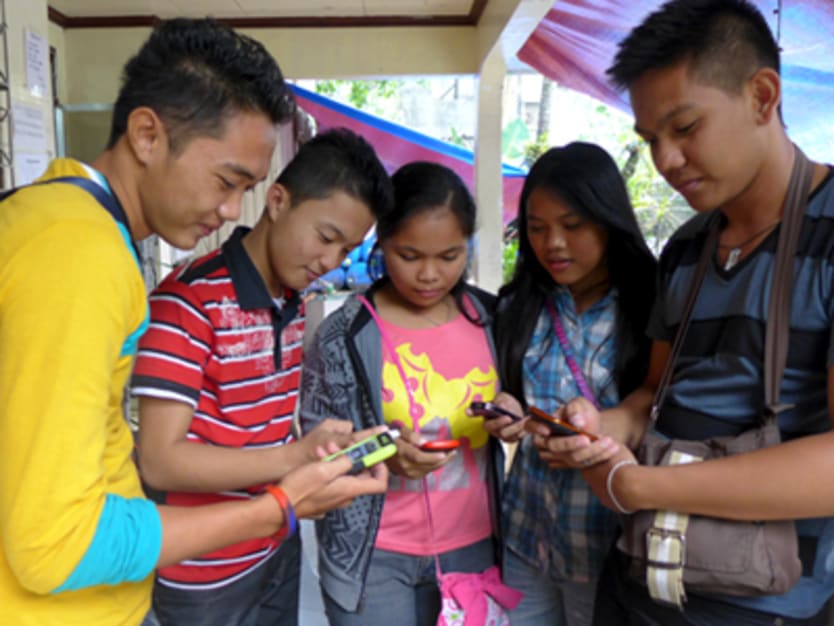
Mobile phones have become vital in addressing many development challenges — from tackling health issues like malaria or educating couples on family planning, to ensuring food reaches the most vulnerable.
These devices are particularly useful in the Philippines, a country branded as the “texting capital of the world” and where almost everyone has a cellphone, regardless of class… or age. And precisely a group of teenagers in Oras, Eastern Samar, have thought of a new way to disseminate information on disaster risk reduction through mobile phones.
A week before Typhoon Haiyan made landfall in that part of the nation, 15-year-old Mark Patrick gathered his so-called “texter clan” to discuss their plan of action to help inform people in their area on how to prepare for the coming disaster.
They did research on the different technical terms being broadcasted by the media, such as storm surges, and conducted orientations in several towns across the province, which proved useful particularly to families with no television or other source of information. They also continuously texted storm alerts from the national weather bureau, and sent tips on how people can get ready for a typhoon.
While their activities did not prevent the disaster from destroying homes and livelihoods, Mark and his friends helped the town survive with zero human casualties.
Youth action
Mark’s involvement in disaster risk reduction efforts was prompted by his surrounding — at the very young age of 11, he witnessed how vulnerable his town was to flooding, landslides and typhoons.
“So … I started joining organizations, such as our barangay children’s association and other activities spearheaded by Plan International,” he told Devex, referring to the aid group that provides them with training and helps build their capacity as a community organization.
Such involvement on climate-related issues at a young age shouldn’t really come as a surprise. In 1992, Severn Cullis-Suzuki, then a 12-year-old girl from Canada, silenced world leaders with her speech denouncing the international community’s inaction against climate change at the Earth Summit in Rio de Janeiro.
What prompted Mark to set up the “DRR texter clan” a few years ago, though, is a different story. The Philippine government has put in place various measures to mitigate disasters in the country, including a law to fight climate change and provides training for the youth — but not enough kids.
“For instance, [the organizers] only choose a few of us in a children’s forum. I feel there’s discrimination [in how they choose children],” he explained.
This could be due to many factors, such as lack of funding and support for the trainings, so Mark set up his own organization, now boasting more than 200 members, to share what he learned from from those trainings, and involve and inform as many kids as possible on disaster risk reduction efforts.
Recently, the town’s mayor responded to their letter and promised to conduct a big event on DRR training, involving representatives from different villages across Eastern Samar.
Whether those sessions will actually happen or not is up in the air — but Mark is hopeful they will push through.
Read more development aid news online, and subscribe to The Development Newswire to receive top international development headlines from the world’s leading donors, news sources and opinion leaders — emailed to you FREE every business day.
